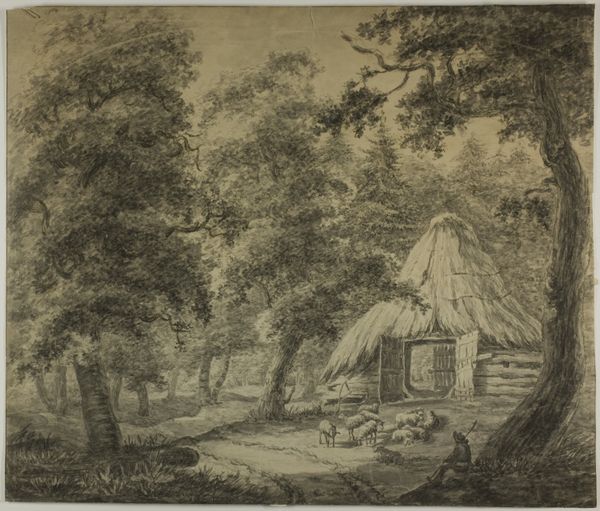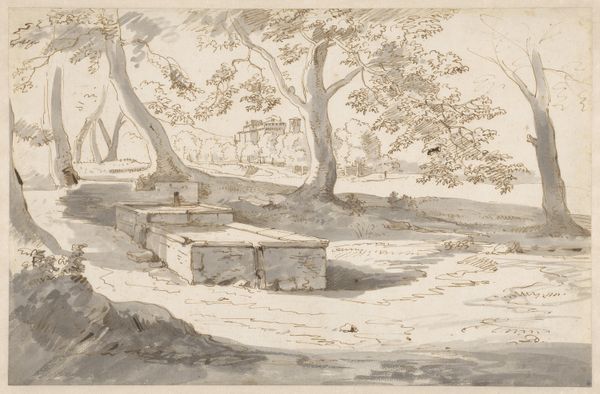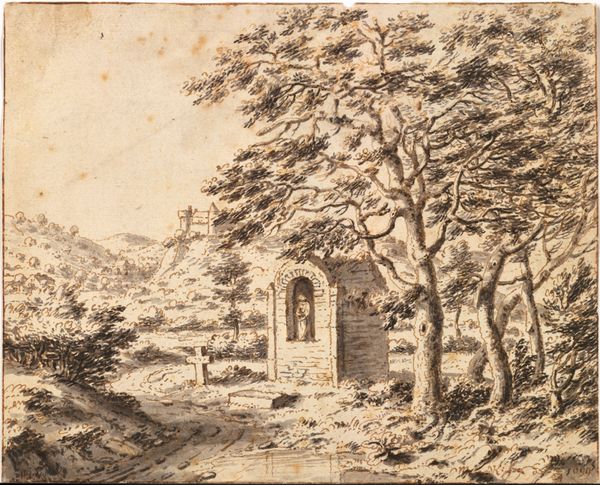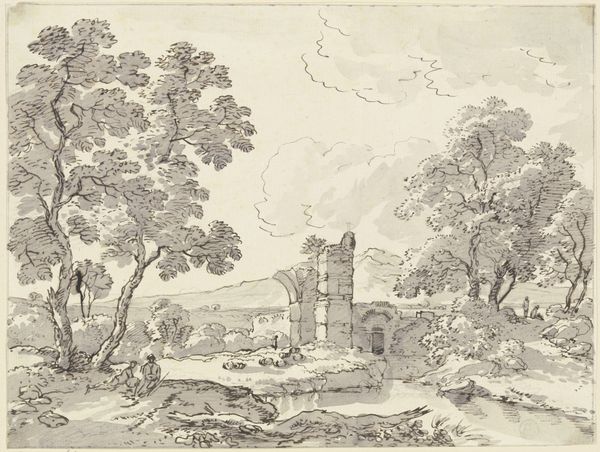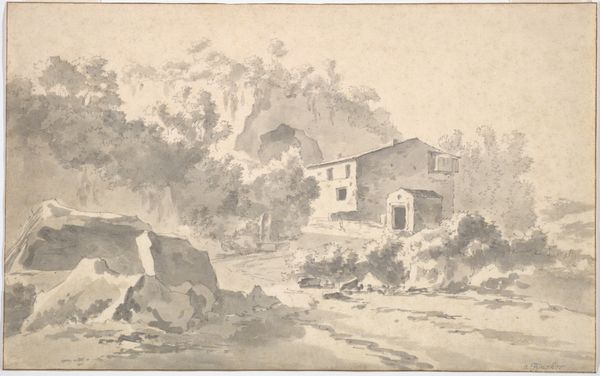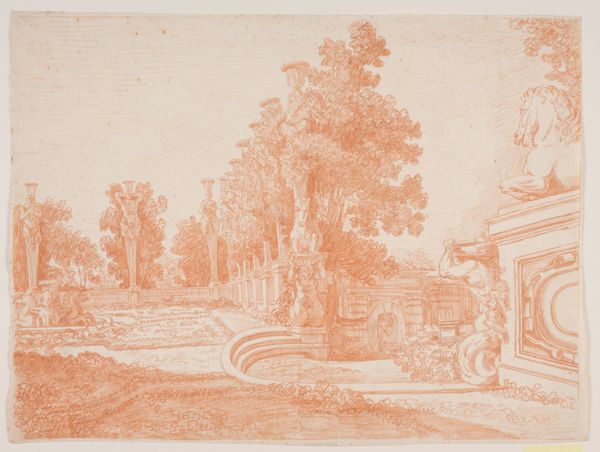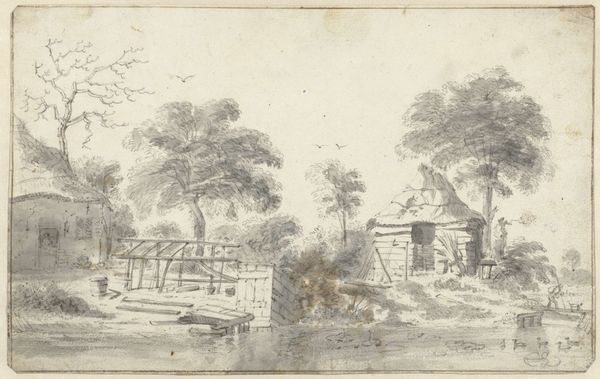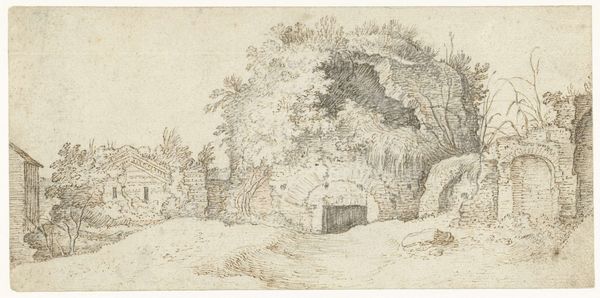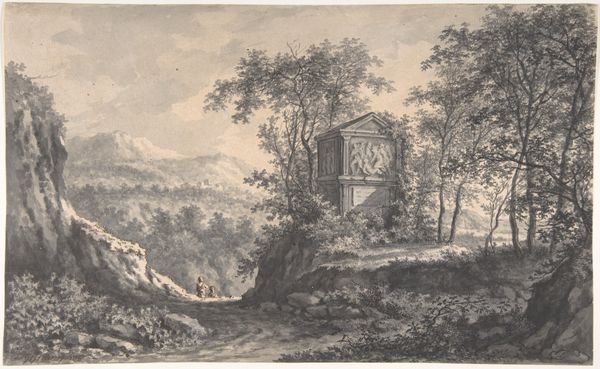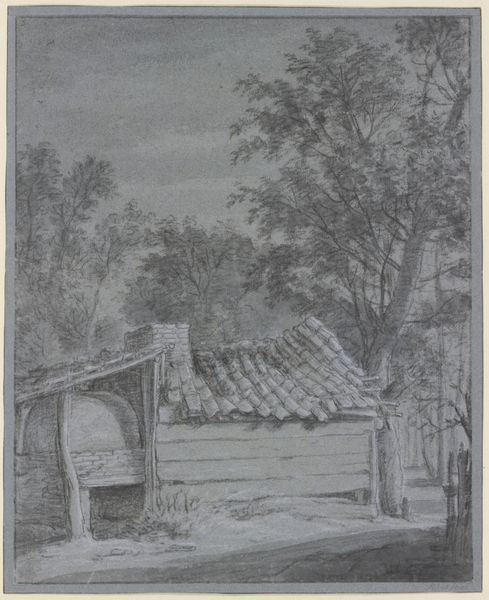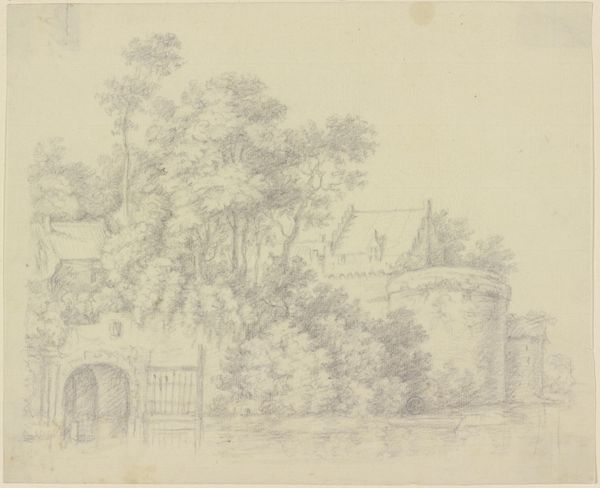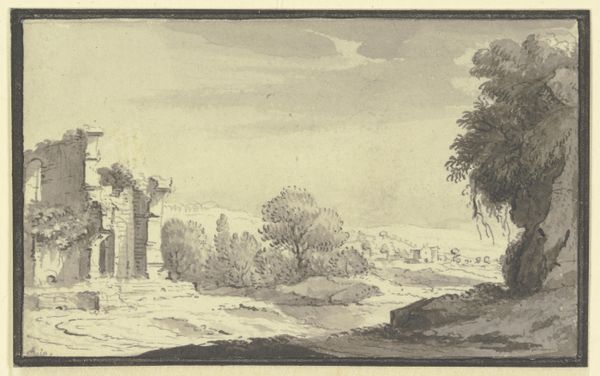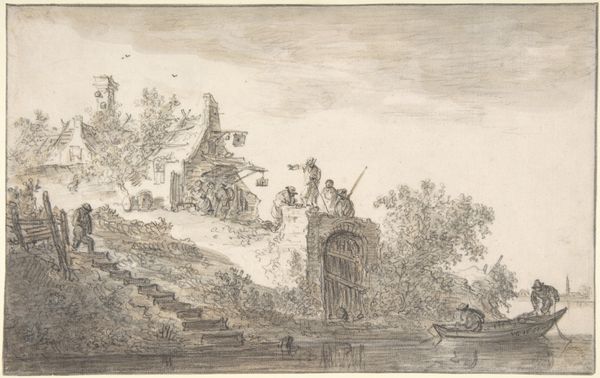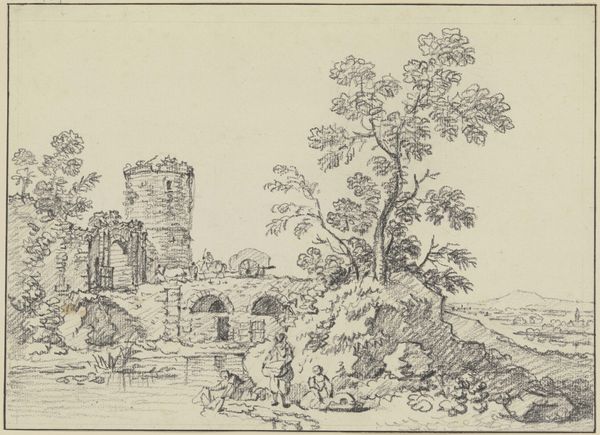
drawing, graphite, charcoal
#
drawing
#
baroque
#
landscape
#
graphite
#
cityscape
#
charcoal
Dimensions: sheet: 10 15/16 x 16 3/4 in. (27.8 x 42.5 cm)
Copyright: Public Domain
Editor: This drawing, "Courtyard of a Farmhouse," made with graphite and charcoal, dates sometime between 1629 and 1677. It is by Thomas Wijck, and we are seeing it today at the Metropolitan Museum of Art. It's quite somber. All the grays really evoke a certain mood, almost… melancholy. What do you see in this piece? Curator: It is interesting that you note melancholy. Notice how Wijck juxtaposes decay with nature. The crumbling brick arches and dilapidated walls – what might those symbols tell us? Ruin, neglect. But they are overtaken by lush foliage, trees framing the composition, nature persisting. Think of the psychological weight of that contrast. Does it tell us something about the impermanence of human creations, compared with the enduring cycle of nature? Editor: That’s a great point, I hadn't considered how the nature reclaims the built environment! I just saw it as pretty foliage. Is that common in Baroque landscape art, to explore that sense of ruin and reclamation? Curator: The Baroque period certainly played with contrasts. Light and dark, opulence and austerity… and life and decay. Often artists are embedding coded signs and cultural memories, hinting at grand narratives within these intimate scenes. So consider Wijck using very particular symbols of ruin, perhaps drawing from popular stories of the time, or philosophical positions concerning how history fades. Editor: So, seeing past what's immediately in front of you, right? Using art as a way to remember cultural values, beliefs, and concerns that have continued or been changed over time. Curator: Exactly. It’s a landscape but it's also a meditation. Editor: I’ll never look at another gray drawing the same way again! Thank you!
Comments
No comments
Be the first to comment and join the conversation on the ultimate creative platform.
